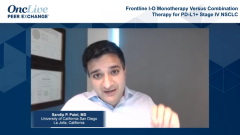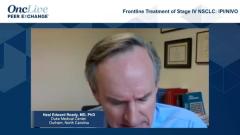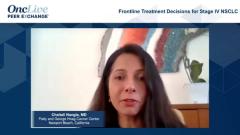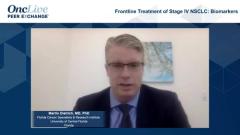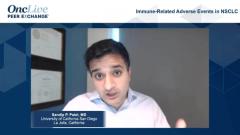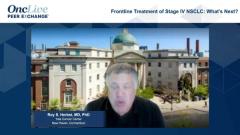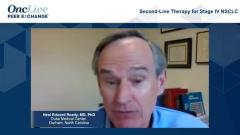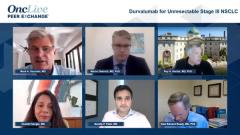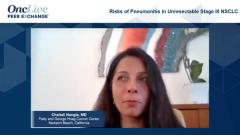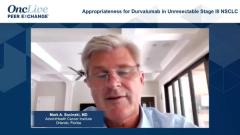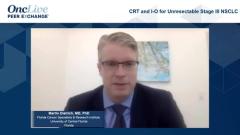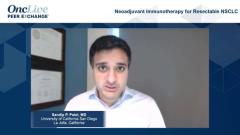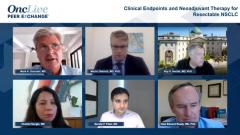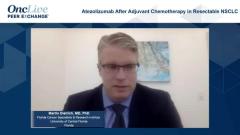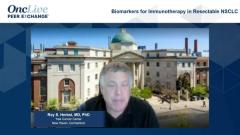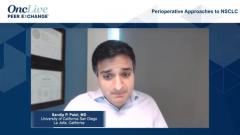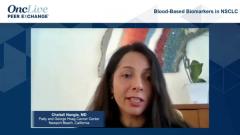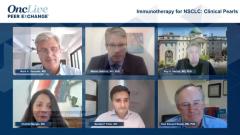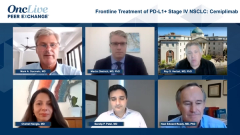
Biomarkers for Immunotherapy in Resectable NSCLC
Dr Roy S. Herbst comments on the utilization of biomarkers and information needed to help aid in treatment decisions about perioperative therapy for patients with resectable non–small cell lung cancer.
Episodes in this series

Mark A. Socinski, MD: Roy, your thoughts on how you see the future. Many, historically, these lung cancer patients don’t necessarily get a biopsy before going to the OR [operating room]. We know the PD-L1 [programmed death-ligand 1] typically is tested on core biopsies, which can sometimes be a challenge in these early patients. Your thoughts on that situation?
Roy S. Herbst, MD, PhD: Certainly, like everything else now, we’re going to need more information early in the patient’s course. So post-op, we’re going to need to know PD-L1 status, just like we want to know mutational status. EGFR, of course. But probably, someday all the different actual mutations. So, PD-L1 is an easy test, it takes 1 section. So, I suspect that a tumor board post-op will probably have a PD-L1 at the same time we know the histology. And then the molecular test takes about another week. But I think this is going to be important because we are going to have to use that, at least in the early round, for the actual immunotherapy.
Mark A. Socinski, MD: How do you, if the neoadjuvant approach catches on, how do you see the whole bio…testing for biomarker thing playing out in that situation where obviously with the ADAURA data, you might be in a position where that is the standard of care. You would want to get the patient resected and then onto adjuvant Osimertinib [Tagrisso] versus if they were not EGFR-positive, perhaps neoadjuvant IO [immunotherapy] approach would be best. Any thoughts in that regard?
Roy S. Herbst, MD, PhD: Again, the earlier testing, the better. So, we probably have to test and do a full panel on every core biopsy, every sampling that we get. And that’s going to be the education. Getting that done around the country, especially for some of these. They’re all quite rare still—10% of patients in the U.S. for EGFR. I think if we’re doing ALK or RET, something like that, so we’re going to have to do widespread testing, and that’s going to have to become something that’s promoted—NGS testing for all. And then the PD-L1, yeah, they get in on every patient now. You don’t even have to ask for it.
TRANSCRIPT EDITED FOR CLARITY


